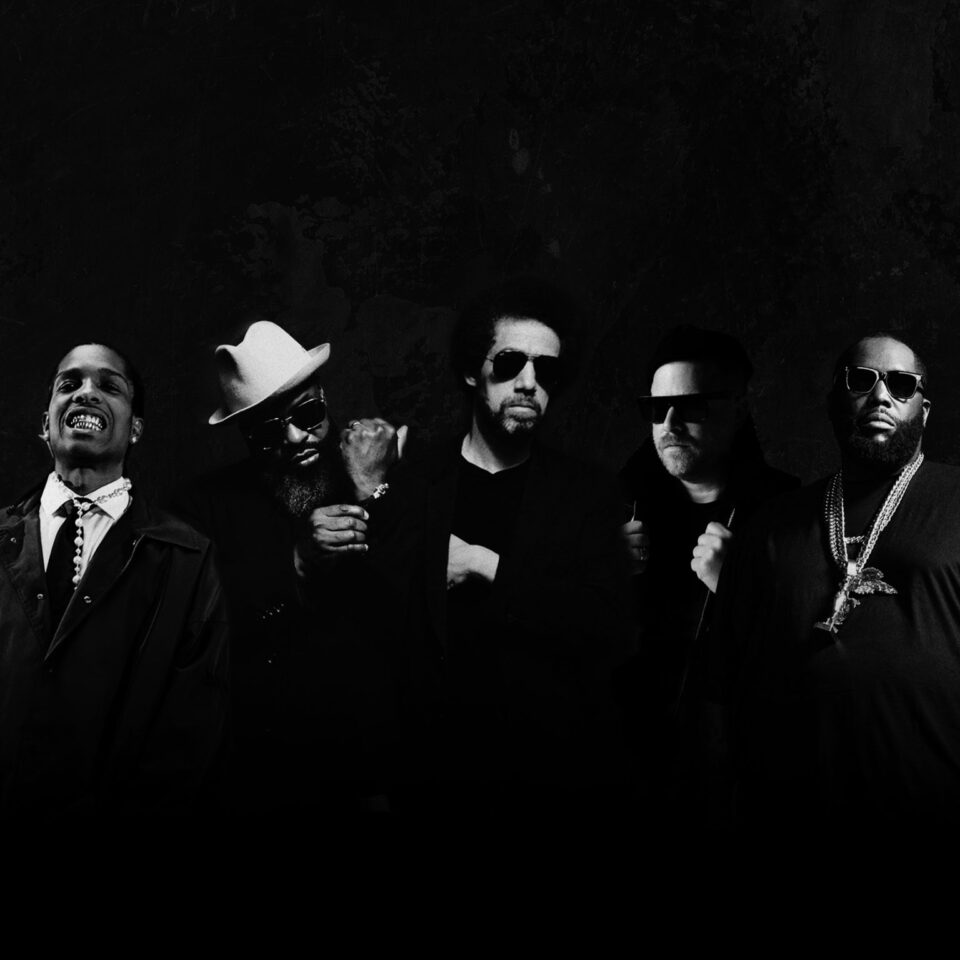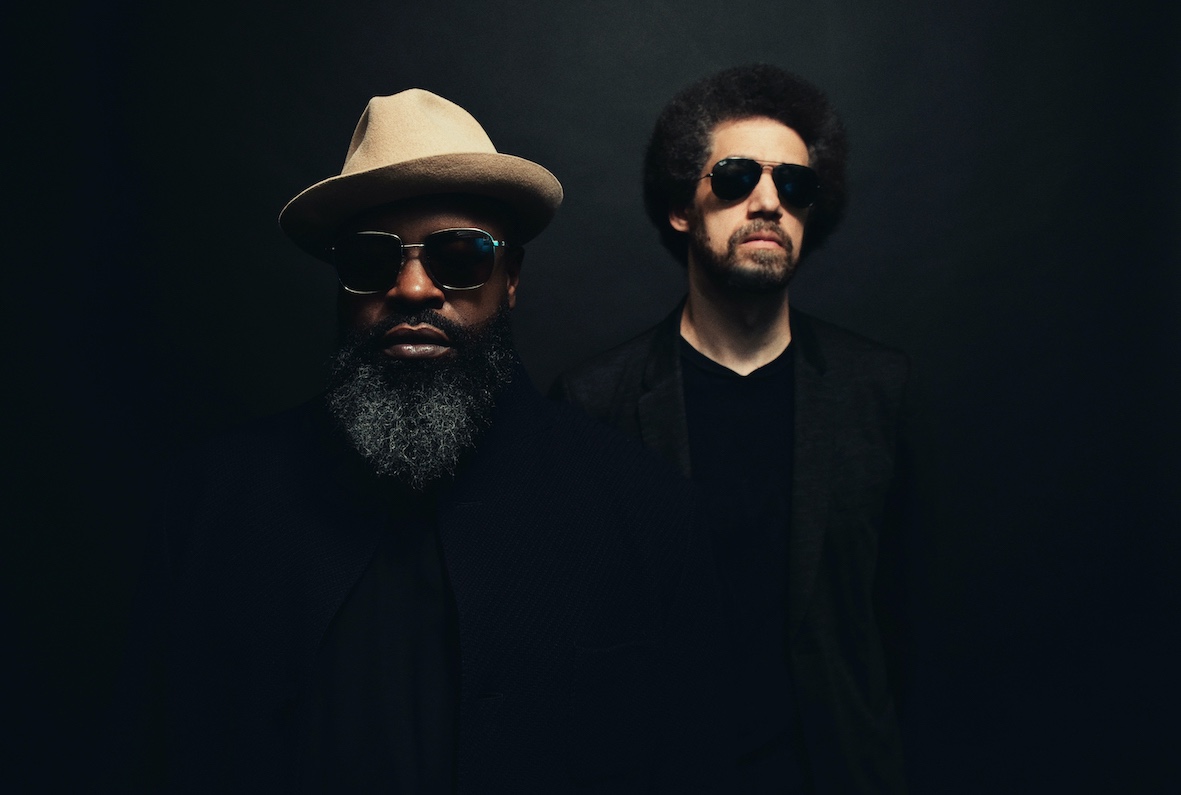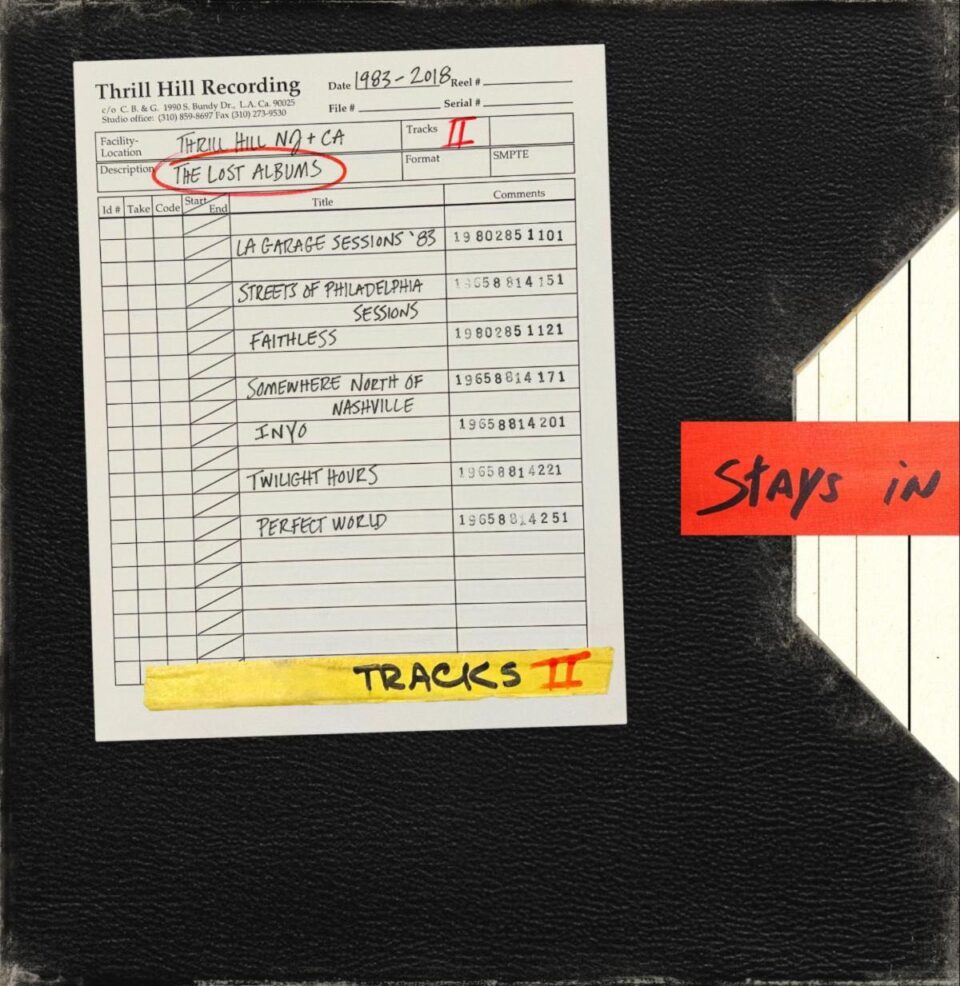Black Thought stands as one of rap’s most lauded wordsmiths. Danger Mouse has crafted disparate sonic worlds on acclaimed collaborative projects with MF DOOM (DANGERDOOM), Cee-Lo Green (Gnarls Barkley), The Shins’ James Mercer (Broken Bells), and Sparklehorse (Dark Night of the Soul), among many others. With their just-released Cheat Codes album, the progressive pair rips through a sonically diverse and lyrically robust set that features standout collaborations with Raekwon (“The Darkest Place”), A$AP Rocky and Run the Jewels (“Strangers”), the late MF DOOM (“Belize”), and Joey Bada$$, Russ, and Dylan Cartlidge (“Because”).
But make no mistake—Cheat Codes shines because of Black Thought’s dense yet lively rhymes jam-packed with clever cultural references and Danger Mouse’s unconventional way of cobbling together unlikely sonics into a mesmerizing aural elixir. In our Q&A, Danger Mouse and Black Thought detail the construction of innovative beats and next-level rhymes that populate their debut collaborative full-length.
Black Thought, I really enjoyed your reference to Public Enemy’s “Black Steel in the Hour of Chaos” on “The Darkest Place.” Why did you choose to use it?
Black Thought: Chuck D has been a huge influence on me lyrically, on my pen. Public Enemy influenced The Roots a great deal. Whenever I have an opportunity to make any sort of subtle nod to a lyric, or namedrop a tune, or do anything that could potentially send folks to Google or rekindle an awareness of one of my heroes, that’s what I go with. So the idea was to pay homage to Chuck D and to Public Enemy. It was the only lyric that made perfect sense, too.
“Whenever I have an opportunity to make any sort of subtle nod to a lyric, or namedrop a tune, or do anything that could potentially send folks to Google or rekindle an awareness of one of my heroes, that’s what I go with.” — Black Thought
“The Darkest Place” ironically seems to have one of the brighter sounding beats on Cheat Codes. Danger Mouse, how did you go about constructing the song and settling on the song title?
Danger Mouse: That song was one of the first things we’d done, but it sounded very different. The drums were very different. Then when we got toward the end of the record, we were starting to look for guests and we got Raekwon on there. I had also been working on the vocal chorus part with Inflow, who I worked with on the Michael Kiwanuka records I’ve produced. Then we got Kid Sister to do it. Once all these elements started getting added to it, I felt like the drums weren’t right. I started trying to do different beats and everything, but I also happened to be working with a friend of mine, this really great musician named Sam Cohen, who decided to do some drum stuff, too. We wound up chopping up a drum part that he did with this and it fit really well. So it went through a lot. We did that a lot on this album—we really kept refining the songs until we got them as good as we could. We’d start with a little bit of a sketch and then we just kept going and going and going.
On the song “Cheat Codes,” Black Thought, you mention people gambling with their lives like Pete Rose. What have you noticed that makes it so people are willing to gamble with their life in such a routine manner?
Black Thought: I’m talking about the gamble that is existence. As a Black man in America, your life is a gamble. I don’t think it’s as much about my travels and those experiences as it is about my American experience that I’m speaking to. I know there’s so many people who’ve shared a similar experience, so I’m speaking to those people. If you know, you know. Those of us who have gambled with our lives like Pete Rose on the daily, they get it.

On “Because,” I imagine some people might think Dylan Cartlidge’s vocals are a sample. Danger Mouse, how do you construct something to sound that way?
Danger Mouse: When something is a sample and comes from a different time period, there’s some distance to it and it feels almost magical. Dylan and I were messing around and he sang so crazy that you couldn’t really understand a lot of it. But that part of it is what made it feel like it had distance, as well. The way he sings, and the tone of his voice, it really does sound like it’s from a different time—especially when it was mixed with an old sample. It’s almost like he was there recording with [the original recording]. It was a nice magic moment that happened out of all the stuff we did for that song. That was the only thing we kept, and it was like a nugget.
On “Belize,” Black Thought, I appreciated how you were saying you’re a product of The Last Poets and The Watts Prophets. What made you want to combine those two there?
Black Thought: I feel The Watts Prophets were essentially the West Coast version of The Last Poets. I feel like they’re overlooked often. But for me, they were equally as influential. So I wanted to speak to that. They’re both that from which we came. Their art, their poetry, the message is in our DNA, directly and indirectly. It’s something I’ve always embraced.
“We really kept refining the songs until we got them as good as we could. We’d start with a little bit of a sketch and then we just kept going and going and going.” — Danger Mouse
Also on “Belize,” I appreciated when DOOM says how Danger will make you groove off a glitch. Danger Mouse, do you remember what made him say that?
Danger Mouse: When we were working together, most of the stuff I was doing was sample-based. He would have a lot of comments on the kinds of stuff I chose to sample, especially back in the day. I don't think I was using the traditional kind of jazz or old R&B records. I always found things that were just a little bit different and strange, and he would comment on it. So I guess he was figuring that I can make something out of anything. I obviously took it as a compliment. It’s nice to have that compliment on record, so I’ll take it.
On “Aquamarine,” Black Thought, what makes you say that you were born to be a teacher and should be studied in Berkeley and Juilliard?
Black Thought: My name is Tariq, which translates to “guiding light,” “morning star,” “messenger,” “teacher.” I was speaking to the Arabic meaning of my name. But as far as my words and the breadth of my work being on par with any other great American writer, American poet, I think it’s just a matter of fact. When my lyrics have been taught or studied in any school setting, it’s been win-win. So I think more of that should happen. I think more of it is definitely gonna take place. FL









